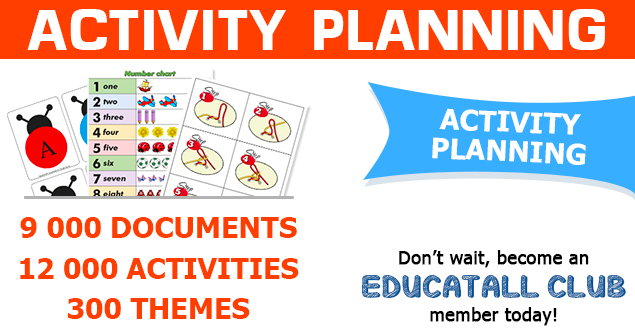
Communicating with parents when something is wrong
I have been working with early childhood educators for a long time. There is one challenge that all early childhood educators face at some point in their career: communicating with parents when something is wrong. Let me reassure you, it is normal for this aspect of your work to be difficult. Discussing a delicate subject with parents isn’t easy. When all is well, telling parents how good their child is at this or that is rewarding, but sharing your concerns when a difficulty persists can complicate things.
Unfortunately, there is no miracle recipe. There are no tricks that make talking about a problem easy. With time, you will however become more confident. The more you discuss with parents, the more tools you will develop. What’s more, you will realize that certain parents are easier to approach. You may have built a stronger connection with them, one that simplifies communication. Beyond all that, know that discussing your concerns surrounding a difficult situation is an obligation. I am sure you would appreciate a few ideas to facilitate this task. Hopefully, the suggestions below will be helpful.
Above all, be sure to get to know the parents of the children who attend your daycare. Where do they live? Where do they work? What do they do? Establishing a positive relationship will make approaching them much easier if a more delicate situation should arise. Try to gradually build a bond with parents from day one. Regularly talking with them will make this possible.
Make a point of sharing fun details about their child’s day on a regular basis so that discussions aren’t always about difficult situations. With parents, talk about their child’s activities and small victories. This will help you build a strong relationship and ensure they understand that you don’t only see the negative aspects. When everything seems to be going wrong, this can be quite important.
Pick the right time to discuss a situation. Depending on the seriousness of the situation, talking about a problem in the doorway at the end of the day may not be ideal. Plan a one-on-one meeting or schedule an evening phone call. Make sure you have enough time to fully explain the situation and leave no room for ambiguity.
Be prepared for this meeting. Make a list of measurable and observable facts that will help you share an overall picture of the situation. Document both the child’s strengths and weaknesses.
Whenever you must discuss a difficulty or bad news, be sure to:
- Share facts objectively and avoid being judgemental.
- Talk about the difficulty or problem in terms of goals that you wish to reach. You may, for example, tell parents that their child has difficulty expressing himself when he is angry, but that you will work together to improve his ability to express his feelings.
- Verify parents’ interpretation of your message. Leave no room for underlying messages and make sure they are not left feeling uncomfortable.
- Have a plan. Share a list of actions you wish to implement to improve the situation.
- Schedule a second meeting to review the situation (implemented actions and results).
Never forget that you must discuss problematic situations with parents to help their child. It’s very important that you work as a team to intervene and implement various actions. If this is difficult, do not hesitate to contact your coordinating bureau and request tools and assistance. You don’t have to face difficult situations alone, especially since they can have quite the impact on both you and the child.
Good luck!

 Home
Home Theme activities
Theme activities
 Babies and toddlers
Babies and toddlers
 Arts and crafts
Arts and crafts
 Science
Science
 Creative recipes
Creative recipes
 Tips and tricks
Tips and tricks
 Special needs
Special needs
 Extra activities
Extra activities
 Educ-TV
Educ-TV
 Newsletter
Newsletter  Online store
Online store Educatall club
Educatall club

